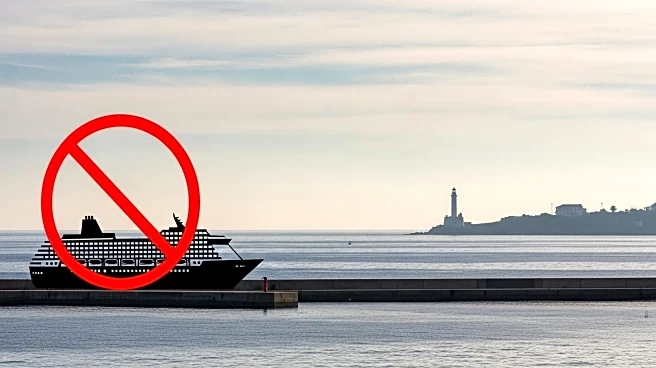What's Happening?
Several European ports, including Amsterdam and Venice, are taking steps to limit or ban cruise ships in an effort to balance tourism with environmental sustainability. These measures are part of a broader trend where local governments are responding to the challenges posed by the cruise industry, such as pollution and overcrowding. The restrictions are expected to be fully implemented by October 2025, with some ports like Cannes planning to limit the size of cruise ships to reduce their environmental impact. This move reflects a growing sentiment among European cities to prioritize the needs of residents and the environment over the economic benefits of cruise tourism.
Why It's Important?
The decision by European ports to restrict cruise ships is significant as it highlights the increasing tension between economic interests and environmental sustainability. The cruise industry is a major contributor to local economies, providing jobs and revenue. However, the environmental impact, including pollution and the strain on local infrastructure, has led to growing concerns. These actions could set a precedent for other regions facing similar challenges, potentially leading to a shift in how tourism is managed globally. The cruise industry may need to adapt by developing more sustainable practices to maintain its economic viability.
What's Next?
As these restrictions are implemented, the cruise industry will likely face pressure to innovate and adopt more environmentally friendly practices. This could include investing in cleaner technologies and smaller, more sustainable ships. Additionally, there may be increased dialogue between industry stakeholders and local governments to find mutually beneficial solutions. The impact on tourism-dependent economies will be closely monitored, and adjustments may be necessary to balance economic and environmental priorities.
Beyond the Headlines
The move to restrict cruise ships also raises ethical questions about the responsibility of tourism industries to protect the environments they operate in. It highlights the need for sustainable tourism practices that respect local communities and ecosystems. Long-term, this could lead to a cultural shift in how travel and tourism are perceived, with greater emphasis on sustainability and responsible travel.









